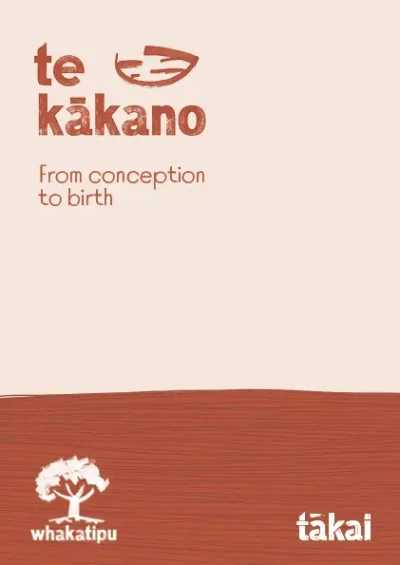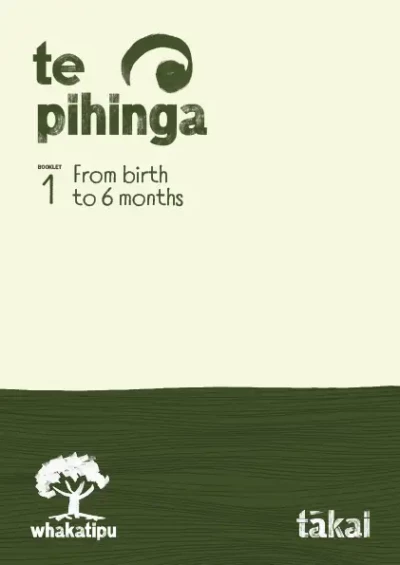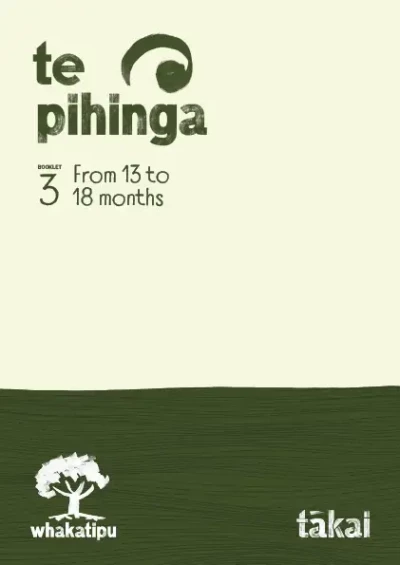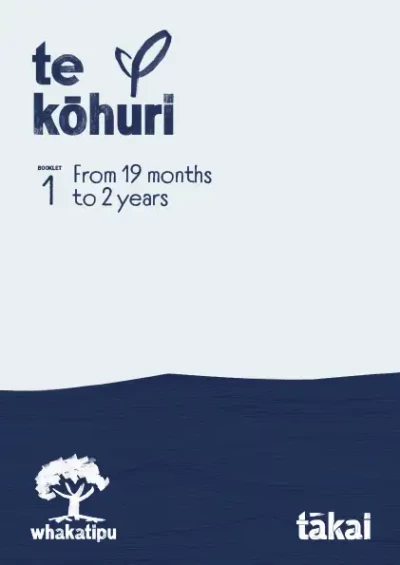
Kōrero mai mō tō tātou whānau Teach me about our family
How whānau relate to one another teaches baby about relationships. Babies copy, and they can learn their culture from whānau.
By Brainwave Trust Aotearoa
The relationships babies have with their parents are an important influence for healthy brain development. Siblings and other whānau members also play an important role – each person has a specific and unique relationship with baby. Through these relationships, baby learns about themselves and the world around them: is it safe and secure and are they loved?
How do whānau members relate to each other?
Baby also learns about relationships by seeing how these special people relate to each other. Everyone in the family is shaping and being shaped by their interactions and emotional connections with each other.
The arrival of a new baby is a big event. Everyone in the home needs to make some adjustments as they get to know their new baby and adapt to the many changes they bring. These adjustments may strengthen family relationships or cause some challenges and disruption. Many families may experience both. Parents may feel tired and overwhelmed as they try to meet baby’s needs.
Whānau support is important
Extended whānau can be a huge support for parents and siblings at this time. Parents who have good support are more likely to be able to parent well. Parents also need to feel confident that other family members who step in to care for baby are able to provide safe, loving care and will know what to do if baby becomes upset.
Parents might think of ways they can care for themselves like taking some time out or doing something they enjoy that will help them feel less tired or stressed.
The kind of care that the family provides sets the stage for baby’s future emotional wellbeing and creates a model for their relationships throughout life. When babies have loving, stable relationships with their close family, they build pathways in the brain that help them have healthy relationships with other people as they grow.
Babies need their family to comfort and settle them when they cry and to help them adjust to patterns of feeding, sleeping and waking. They need their family to talk to them, sing to them and respond to their smiles and gurgles. Through this warm, responsive care, babies learn that they’re loved and special. They also learn that their world is a safe place, and they can trust the people who care for them.
Babies learn by copying their whānau
As babies grow, they learn from watching the people around them and may copy their behaviour and actions. If they see their family relating to each other in a kind, respectful way, they are likely to grow to treat others and expect to be treated in this same way. These early relationships are shaping the adult that baby will become.
The influence of sibling relationships is often overlooked, but these may be the longest relationships that baby has throughout life and can have a major impact on their behaviour and development. As baby grows, they can learn important skills from their brothers and sisters – co-operation, negotiation skills and understanding that others have different needs from their own.
Sharing healthy family culture with baby
Parents who tell whānau stories, share photographs and enjoy family rituals together are helping baby build good memories of whānau life. Although baby may not recall these early memories, they’re still helping to build a healthy brain and an understanding of loving relationships.
Telling stories also helps baby learn new words and develop imagination. Parents can talk to baby about their culture and values. They can talk and sing in the language of their culture. It’s much easier for baby to learn a second language from birth.
It can be helpful for parents to think back to their own childhood experiences, and they may have some lovely memories that they want to recreate for their own baby. There may also be things they want to do differently.
A baby who is cared for in a loving, responsive way is more likely to become a loving parent.
Summary
- Baby’s most important relationships are with their family.
- All families need to make adjustments as they adapt to having a new baby in their family.
- Early, loving family relationships are setting up a model for baby’s future relationships.
- Sibling relationships can have a major impact on baby’s behaviour and development.
- Whānau can help baby learn about their culture, language and values simply by singing and telling stories.
- Parents may want to recreate some of their own positive childhood memories or they may want to do some things differently.
Brain development information has been woven throughout the Whakatipu booklets, describing what's happening for pēpi in their 'hinengaro mīharo’ (amazing brain) at different stages. This gives parents simple neuroscience information to support them with their parenting:
- Te Kākano, pages 13 and 37 — singing to baby before birth
- Te Pihinga 1, pages 15 and 25 — learning languages
- Te Pihinga 3, page 9 — building memories
- Te Kōhuri 1, pages 9 and 11 — learning languages

















